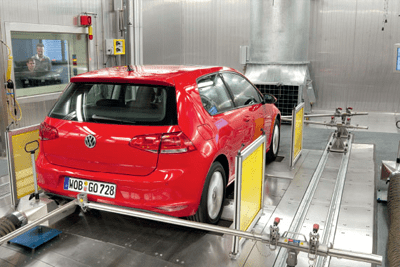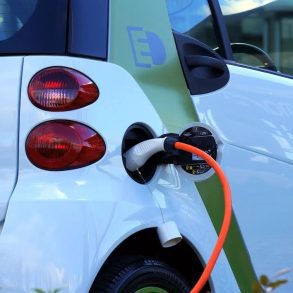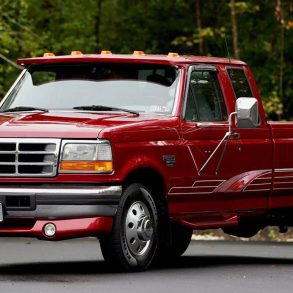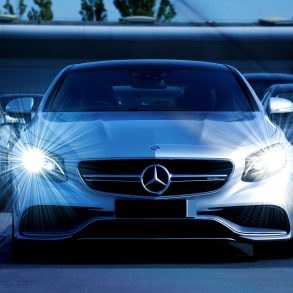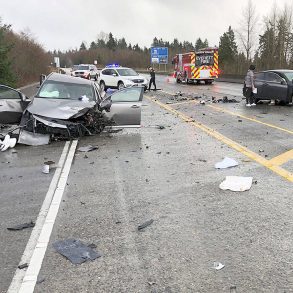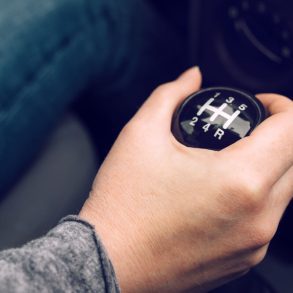A lot has been written about the Volkswagen diesel emissions scandal that’s been uncovered in the US. But not yet here on Left-Lane.com. That’s not because we’re secretly supporting VW and refuse to write anything bad about them. It’s because we refuse to just republish news stories that you can find elsewhere on the internet. Left-Lane aspires to offer its readers unique content that you will not find elsewhere. And since I (Bart) have been very busy with other obligations the past few weeks (as you may have noticed, while Krzysztof and Rutger have been very busy, I haven’t published any articles in 3,5 weeks), I haven’t had the time to sit down and contemplate our angle on this perhaps industry-changing matter. Quality goes before quantity, so I hope this article meets your expectations. If so, or if not, please post your comments below. Thanks!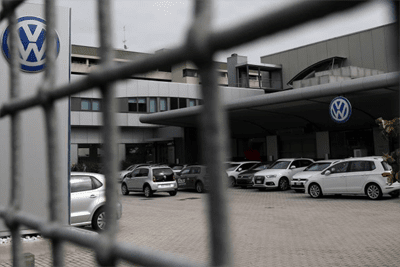
Volkswagen is facing serious trouble in the US and worldwide after admitting it had misled US regulators by installing “cheating software” designed to make sure the cars emit much less nitrous oxide (NOx) during the standard testing procedure than they actually do in real life. Besides facing a hefty fine of up to $18 billion (but probably much less than that maximum figure) VW can expect just in the US, the fallout from a marketing and image perspective is potentially many times worse if the company doesn’t act swiftly and firmly to restore confidence in the brand.
Let’s hope confidence in the automotive industry also remains intact, after Toyota’s unintended acceleration safety failure, GM’s faulty ignition switch scandal (see a trend here with companies trying to become the biggest in the world?) and the recent scandal with Takata airbags.
But is VW the only one to cheat in emission tests?
No matter how incredibly and unforgivably wrong Volkswagen has been in this matter, I refuse to believe they are the only manufacturer to manipulate its software or other parts of their vehicles in order to perform better in fuel efficiency or emission test procedures. They were simply the first ones to get caught and have therefore been made into the piñata of the automotive industry. What this whole scandal may have actually done is lay bare the issues with testing procedures that are too far off reality and which can be too easily manipulated. The big drop in share prices across all major automotive OEMs, though not as badly as the drop in VW shares, signals that investors also believe Volkswagen is not alone in this and the industry as a whole may face tough times ahead.I’m not saying other manufacturers may be using the same software as VW, as it appears that this specific issue remains unique to Volkswagen, but testing cycle manipulation is an industry wide phenomenon that almost every manufacturer will be more or less guilty of in one way or the other, as I’ll explain later in this article.
Why it’s unlikely VW has used the same software in Europe
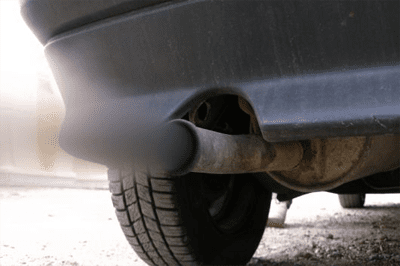 Reuters has published a report stating that VW admitted that 8 million diesel vehicles in the EU were fitted with software capable of (emphasis mine) cheating emission tests, which many media interpreted that this has actually happened. However, I think those media have all (intentionally or not) missed the subtle distinction of the words capable of. I think it’s very unlikely they’ve actually used the same software that’s about to strangle the brand in the US.
Reuters has published a report stating that VW admitted that 8 million diesel vehicles in the EU were fitted with software capable of (emphasis mine) cheating emission tests, which many media interpreted that this has actually happened. However, I think those media have all (intentionally or not) missed the subtle distinction of the words capable of. I think it’s very unlikely they’ve actually used the same software that’s about to strangle the brand in the US.
Let’s first take a look at the differences between regulations: compared to their North American counterparts, regulators in Europe focus less on NOx emissions (which are claimed to contribute to smog) than on fuel efficiency and subsequently carbon dioxide (CO2) emissions (which are claimed to contribute to climate change). NOx emissions can be reduced by having the ECU feed the engine with a richer fuel-air mixture, which would subsequently result in lower fuel economy. The software VW implemented into its diesel cars recognizes the circumstances in which an EPA emissions test is performed and then switches to a richer mixture, lowering the NOx emissions, but hurting fuel economy. As a result, many VW diesel owners in the US experienced better fuel efficiency in real life than the official EPA figures based on those test results, because the engine would run on a much leaner mixture in normal driving conditions.
In Europe, the focus of emission testing is much less on NOx and more on CO2, which is directly related to fuel efficiency. Therefore, engines in European cars are likely to run leaner, improving fuel economy, while the trade-off of higher NOx emissions is of less importance to the European regulator. So the European governments that have been quick to ban sales of Volkswagen TDI engines and are falling over each other to point their pedantic finger at VW, shouldn’t be too worried about that the cars they’ve let onto their roads have the same malicious software as those in the US.
Why European governments have themselves to blame as well
Even though the matter requires a thorough investigation and even though Volkswagen’s contempt of the regulations deserves to be frowned upon, the EU governments should also be focused inward, as emission test manipulation isn’t strictly limited to North America. On the contrary, it may be even more prominent in Europe, because of 2 reasons: more emphasis on fuel economy in country-specific tax regulations, giving a higher incentive to cheat and secondly a flawed testing procedure, making it easier to cheat without getting caught. And that’s something the local governments control themselves.
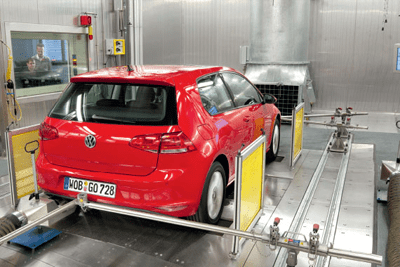 In recent years, CO2 emissions have become increasingly more important in several European countries, with large differentials in the taxation of fuel efficient cars vs. gas guzzlers. In some countries, offering a model with CO2 emissions right at the limit of a certain tax bracket, while the competition emits just 1 g/km more (but just over the limit), can give that model an advantage of thousands of Euro’s in the purchase price, leading to huge differences in sales between direct competitors. To make matters worse, these high stakes are dependent on the fuel efficiency test run by the EU regulator, called New European Driving Cycle (NEDC), which is flawed to begin with, as the driving conditions required in the test are too far off real world driving. This gives manufacturers the opportunity to put ever more focus on “optimizing” their vehicles, powertrains and software to the specific driving cycle that is tested.
In recent years, CO2 emissions have become increasingly more important in several European countries, with large differentials in the taxation of fuel efficient cars vs. gas guzzlers. In some countries, offering a model with CO2 emissions right at the limit of a certain tax bracket, while the competition emits just 1 g/km more (but just over the limit), can give that model an advantage of thousands of Euro’s in the purchase price, leading to huge differences in sales between direct competitors. To make matters worse, these high stakes are dependent on the fuel efficiency test run by the EU regulator, called New European Driving Cycle (NEDC), which is flawed to begin with, as the driving conditions required in the test are too far off real world driving. This gives manufacturers the opportunity to put ever more focus on “optimizing” their vehicles, powertrains and software to the specific driving cycle that is tested.
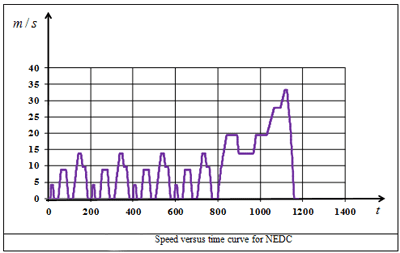 As a result of automakers having become more and more proficient in these optimizations, the difference between the “official” fuel economy figures and those achieved by an average driver in the real world has increased to as much as 40% in recent years, with BMW, Fiat and PSA among the manufacturers with the largest gaps between theory and practice. While technically this may not be called cheating as it happens within the limits of the law (and that’s where the problem lays), it still means customers are being misled.
As a result of automakers having become more and more proficient in these optimizations, the difference between the “official” fuel economy figures and those achieved by an average driver in the real world has increased to as much as 40% in recent years, with BMW, Fiat and PSA among the manufacturers with the largest gaps between theory and practice. While technically this may not be called cheating as it happens within the limits of the law (and that’s where the problem lays), it still means customers are being misled.
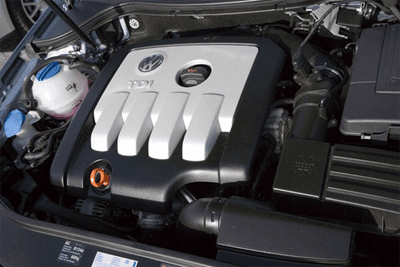 What makes matters worse, is that the tests are performed by the automakers themselves, under surveillance from independent testing organizations certified by national governments. These organizations are commercial businesses that are dependent on their customers: the automakers. As a result, they allow the automakers to optimize the tested vehicles by, for example, allowing the vehicle to run the test with the side mirrors folded or even completely removed, panel gaps taped off, increased tyre pressure and even the alternator disconnected, situations which would never occur on public roads.
What makes matters worse, is that the tests are performed by the automakers themselves, under surveillance from independent testing organizations certified by national governments. These organizations are commercial businesses that are dependent on their customers: the automakers. As a result, they allow the automakers to optimize the tested vehicles by, for example, allowing the vehicle to run the test with the side mirrors folded or even completely removed, panel gaps taped off, increased tyre pressure and even the alternator disconnected, situations which would never occur on public roads.
Why the flawed testing procedure won’t be replaced anytime soon will be the subject of another article in the next few days.
After the press and public became aware of Volkswagen’s deceptive software, BMW was quick to point out that their X5 diesel passed the exact same test that uncovered Volkswagen’s cheating device. Surely, the way VW blatantly broke the rules doesn’t deserve any praise, but other brands better be careful not to boast too much about not cheating the emission tests, because they might be operating within the limits of the law, but public perception can change quickly about whether they operate within the limits of what’s ethically and morally accepted or not.

